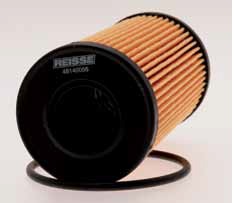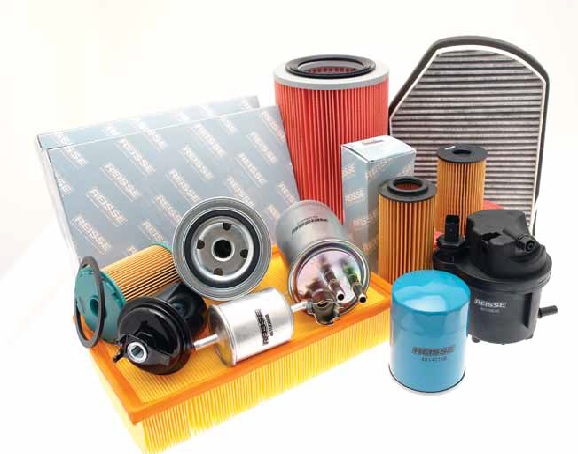Filtration

Engine Lubricants & FiltersEngine lubricants and filters are no longer simple commodities; they are ‘designer products’ specifically tailored to each engine. Vehicle manufacturers are increasingly recommending specific oils to meet today’s performance and protection challenges; this requires the selection of the most appropriate oils and filters. JOURNEY THROUGH THE OIL WAYS The lubrication provided by engine oil is essential in maintaining a healthy system, good performance and longevity of engine components. Oil not only lubricates moving parts to reduce friction, it also: • Cools components as it is pumped around the system • Seals the wall of the combustion chamber and piston rings • Cleans the engine by picking up particles of dirt and depositing them in the oil filter THE OIL PARADOX As the oil travels through the engine it becomes hotter through contact with the moving engine parts. As the temperature increases it starts too thin, or to use the technical term it loses its viscosity. While low viscosity means better fuel economy, go too thin and you lose the protective quality of the oil and wear becomes a problem. MONOGRADE OR MULTIGRADE OIL • Monograde oil has a viscosity defined at one temperature, either high or low. • Multigrade oil will provide effective protection at both high and low temperatures. • Multigrade oils are the popular year round choice for UK drivers who experience hot summers and freezing winters. • Multigrades are easily recognised by the dual viscosity rating: i.e. 0W-40. • Viscosity modifiers control the thickness of the oil throughout the range of temperatures. As oil passes through the fine membrane inside the filter, unwanted contaminants are extracted. Without the oil filter, particles would build up in the oil, causing abrasive wear of the bearings and reducing the potential working life of the engine.
WHAT ARE FILTERS MADE OF? Original equipment manufacturers use various materials for the filter medium, ranging from cellulose-based (basically paper) to synthetic fibres. The most common filter medium is a cellulose-synthetic blend. As a natural fibre, cellulose has an irregular fibre pattern which enables it to filter particles of varying sizes. Synthetic fibre on the other hand, can be produced with very small, uniform pores which trap tiny dirt particles missed by the cellulose. Combining cellulose and synthetic fibres in this way increases the filter’s capacity and lifespan, giving higher levels of protection to the engine. FROM SPIN-ON TO ECO FILTERS Over the last couple of decades the traditional spin-on filter has become the most common type of oil filter; however a combination of increased engine pressures and environmental considerations has led to the cartridge style Eco filter becoming ever more popular amongst today’s vehicle manufacturers. In a spin-on filter the base gasket is the only connection the filter has to the engine. With oil pressures ranging from 5 psi to as much as 100 psi, depending on engine type and design, a failure of this component could cause the engine to run out of oil in minutes and lead to a catastrophic engine failure. Manufacturers feel it is now safer to house the filter within the engine block and allow just the filter medium to be changed when being serviced. This reduces the need to replace metal casings each time a filter is changed, thus reducing the amount of materials used and waste produced with an overall benefit to the environment. QUALITY COUNTS The quality of the oil filter should not be compromised, and as a rule, oil filters should be replaced whenever the engine’s oil is changed. All Reisse filters are fitted with OE-quality filtration media to ensure a continuous supply of clean oil around the engine. With recent developments in modern engines, filter media are being designed specifically for engines that use synthetic oils. It is now essential that factors and garages are aware of the engine-specific filter requirements and their required service intervals. This will ensure that potential opportunities for oil filters sales are maximised. Engine oil – is a fast moving service item and an oil change is part of a car’s normal service • Multigrade oil provides year-round protection and is the best choice for UK drivers • Multigrade oils are easily recognised by the dual viscosity rating: i.e. 10W-30 Oil Filter – is a vital part of the lubrication process and should be replaced with each oil change • Failure of the oil filter can starve the engine of oil • Filter media are made from blends of natural and synthetic fibres to trap microscopic particles • Eco filters are becoming increasingly popular with vehicle manufacturers • Filters unwanted contaminants to prevent abrasive wear of the bearings FUEL FILTERS Fuel filters protect the fuel system and prevent contaminants from clogging carburettors or fuel injectors. Fuel filters need regular maintenance to avoid a drop in engine performance and should always be replaced whenever the fuel pump is replaced. These filters are even more critical on diesel applications because dirt or other small particles can ruin the diesel injector system. AIR FILTERS A vital element of the MOT service, failing to replace the air filter can allow debris to damage the air mass sensor, causing costly repairs. Air filters prevent abrasive dust and dirt particles from entering the engine and causing wear and oil contamination. CABIN FILTERS Over 90% of new vehicles are equipped with cabin filters, and they are a standard service item creating a strong sales and profit opportunity. Cabin filters prevent contaminants including dust particles, pollen, water droplets and gaseous pollutants getting into the passenger compartment. A quality filter is therefore important to protect passengers’ health and well-being. Reisse cabin filters include carbon and polymer types; carbon filters remove odour, as well as the same particles as a regular polymer particulate filter. |
Related Articles Related Downloads |
